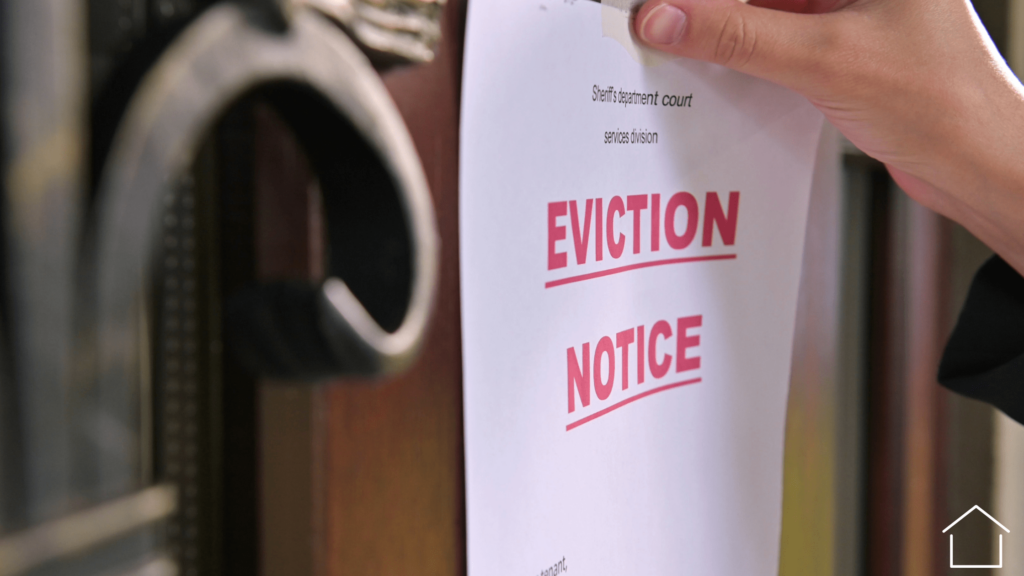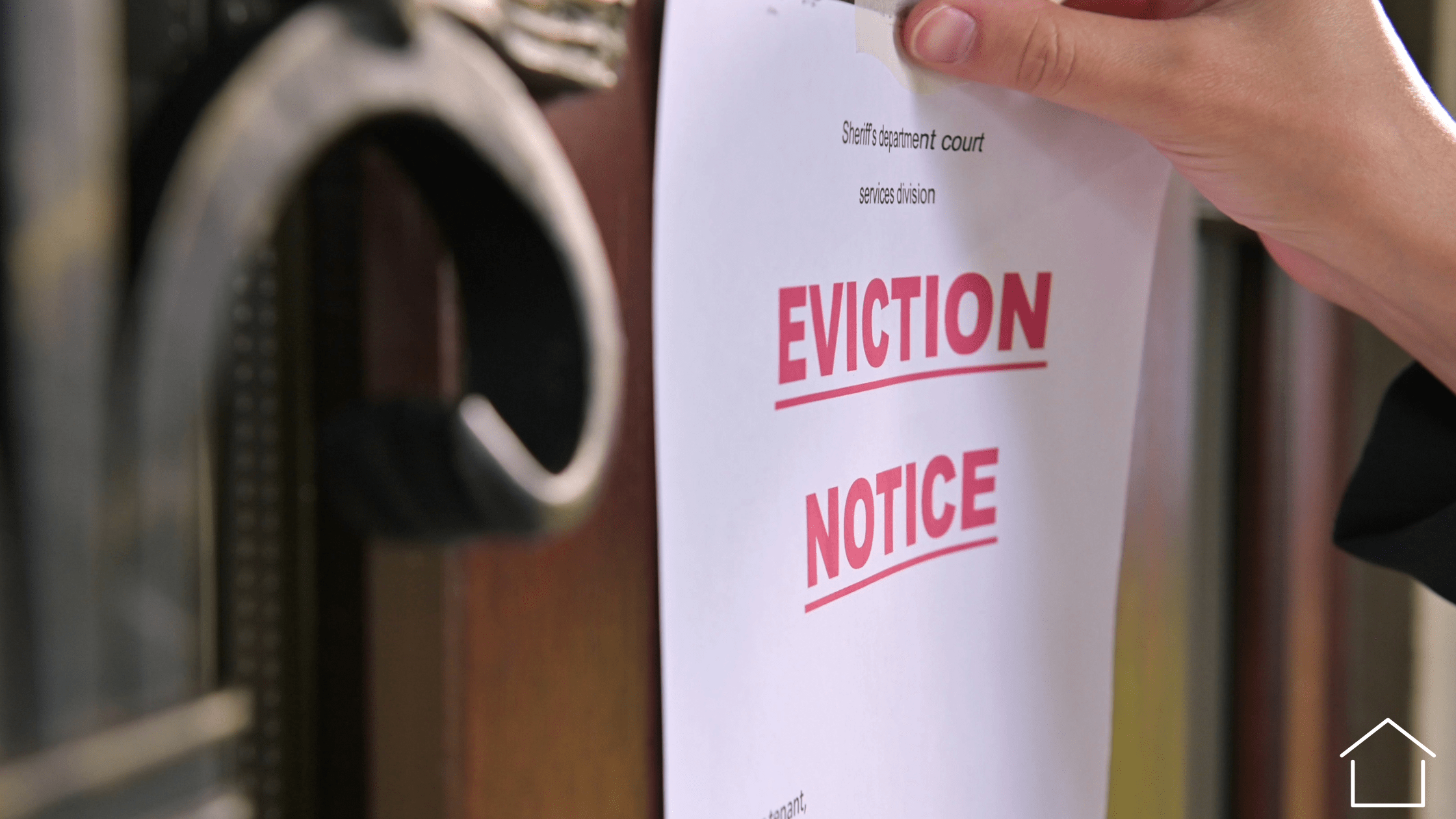
Eviction is when a landlord legally removes a tenant from a rental property. It can happen for reasons like not paying rent, breaking the lease agreement, or causing damage to the property. In Florida, the time it takes to complete an eviction can vary depending on different factors.
Factors That Impact How Long an Eviction Takes in Florida
Contested vs. Uncontested Eviction
- Contested Eviction: This happens when the tenant disagrees with the eviction notice or the reasons given by the landlord. These cases often involve going to court and can make the eviction process longer. Contested evictions typically require multiple hearings, legal filings, and possibly even a trial. The tenant may present defenses or counterclaims, which can further extend the timeline.
- Uncontested Eviction: In these situations, the tenant doesn’t argue against the eviction and may leave the property willingly or after a simple court decision, which leads to a faster resolution. Since there’s no dispute to resolve, the process is straightforward and usually involves minimal court intervention.
Type of Eviction Notice Given
The type of notice served affects how quickly the eviction process moves forward because each notice has different requirements and timelines before further legal action can be taken:
- 3-Day Notice to Pay Rent: This is given when a tenant doesn’t pay rent. The tenant has three days to pay what they owe or move out. If the tenant fails to comply within this period, the landlord can then file for eviction in court.
- 7-Day Notice to Cure: This notice is used for lease violations other than not paying rent (for example, having unauthorized pets). The tenant has seven days to fix the problem. If the issue is resolved within this timeframe, eviction proceedings can be avoided. However, if not corrected, it leads to further legal steps.
- 7-Day Unconditional Quit Notice: This is for serious lease violations like illegal activities. The tenant must leave within seven days without any option to correct their actions. Because this notice deals with severe breaches of contract, it often results in quicker court proceedings and swifter removal of the tenant.
Understanding these factors helps both landlords and tenants navigate the eviction process more effectively. Each step has specific legal requirements and timelines that must be adhered to ensure compliance with Florida law.
Court Delays
The schedules and backlogs of local courts can significantly affect how quickly an eviction case moves forward. Several factors contribute to these delays:
- High Case Volume: If there are many cases being dealt with simultaneously, it might take longer to schedule hearings and process paperwork. This backlog can slow down the entire eviction process.
- Staff Shortages: Courts may experience staff shortages, which can lead to delays in handling documents, scheduling hearings, and issuing decisions. This can extend the timeline for resolving your case.
- Holidays and Weekends: Court operations are usually limited during holidays and weekends. This can add additional days or even weeks to the overall timeline if your case is filed around these times.
- Complexity of Cases: Some cases are more complex than others, requiring more time for judges to review evidence and make informed decisions. Complex cases might push back hearing dates for simpler cases like uncontested evictions.
- Administrative Errors: Mistakes in paperwork or administrative processing errors can also cause delays. These errors often necessitate rescheduling hearings or refiling documents.
Sell Your House As-Is Fast!
Average Eviction Timeline in Florida
Understanding the average eviction timeline in Florida is crucial for both landlords and tenants. The process can vary based on several factors, but generally follows a series of well-defined steps.
1. Notice Period
- Three-Day Notice: For non-payment of rent, landlords must provide a three-day notice excluding weekends and holidays.
- Seven-Day Notice: For lease violations other than non-payment, such as property damage or unauthorized pets, a seven-day notice is typically required.
2. Filing the Eviction Lawsuit
Once the notice period expires without resolution, the landlord can file an eviction lawsuit with the county court. This involves:
- Preparing and submitting a complaint
- Paying filing fees
- Serving the tenant with court papers
Timeframe: 1-5 days depending on court schedules and service methods.
3. Tenant’s Response Period
After being served, the tenant has five business days to respond to the complaint. Possible responses include:
- Filing an answer disputing the claims
- Paying overdue rent into the court registry
- Not responding, which may lead to a default judgment
Timeframe: 5 business days
4. Court Hearing
If the tenant responds, a court hearing will be scheduled to review evidence from both parties. The judge will then make a decision based on this information.
Timeframe: Varies by court availability; typically 1-3 weeks after tenant’s response
5. Judgment and Writ of Possession
If the judge rules in favor of the landlord:
- A judgment for possession is issued
- The landlord requests a writ of possession, authorizing law enforcement to remove the tenant
Timeframe: Issuance within 1 week after judgment
6. Execution of Writ of Possession
The sheriff posts a 24-hour notice on the property. If the tenant does not vacate voluntarily within this period, law enforcement will physically remove them.
Timeframe: 24 hours after posting
Understanding these steps helps set realistic expectations regarding eviction timelines in Florida.
Additional Considerations
Both landlords and tenants may find it helpful to have a lawyer during the eviction process. Lawyers can guide them through complex legal procedures and ensure compliance with all relevant laws. This is particularly important in cases where:
- There are disputes over lease terms
- There are claims of discrimination
- There are multiple violations by the tenant
Tenant Resources
Tenants facing eviction can access various resources that provide support and assistance:
- Legal Aid Services: These organizations offer free or low-cost legal help to those who qualify. They can assist with understanding eviction notices, preparing for court hearings, and negotiating settlements.
- Housing Counseling: Certified housing counselors can provide advice on finding alternative housing, understanding tenant rights, and managing finances to avoid future evictions.
- Emergency Rental Assistance Programs: Many local governments and non-profits offer financial aid to help tenants pay overdue rent and avoid eviction. Eligibility criteria and availability vary by location.
- Community Support Services: Various community-based organizations offer support services such as temporary housing, food assistance, and job placement programs to help tenants stabilize their living situations.
- By utilizing these resources, tenants can better navigate the challenges of eviction and potentially find solutions that prevent displacement.
Closing Thoughts
Knowing how long evictions typically take in Florida is important for both landlords and tenants. Understanding this process can help everyone involved have realistic expectations and get ready for each step.
If you’re a property owner facing the challenges of eviction in Florida or simply looking to sell your house fast, consider reaching out to Pavel Buys Houses. We buy houses with tenants, providing you with a quick and hassle-free solution.
Don’t wait—contact Pavel Buys Houses today to learn more about how we can help you move forward.
Frequently Asked Questions About Eviction in Florida
Below are some of the most common FAQs associated with the eviction timeline process in the state of Florida:
Can a landlord evict a tenant without going to court?
No, all evictions in Florida must go through a formal court process.
What happens if a tenant refuses to leave after receiving a writ of possession?
Law enforcement officers will enforce the writ and remove the tenant from the property if they don’t leave willingly within the specified time frame.
Are there any protections for tenants during extreme weather events?
Yes, certain temporary protections may apply during declared emergencies such as hurricanes or other natural disasters, delaying eviction proceedings temporarily.
Is a landlord required to provide notice before filing an eviction lawsuit?
Yes, Florida law requires landlords to provide tenants with a written notice of their intention to terminate the tenancy before initiating legal action. The notice period varies depending on the reason for eviction, such as nonpayment of rent or violation of lease terms.
Can a tenant fight an eviction in court?
Yes, tenants have the right to contest an eviction in court by presenting their case and providing any supporting evidence or arguments. It is advisable to seek legal counsel for assistance in navigating the eviction process and understanding your rights as a tenant.


